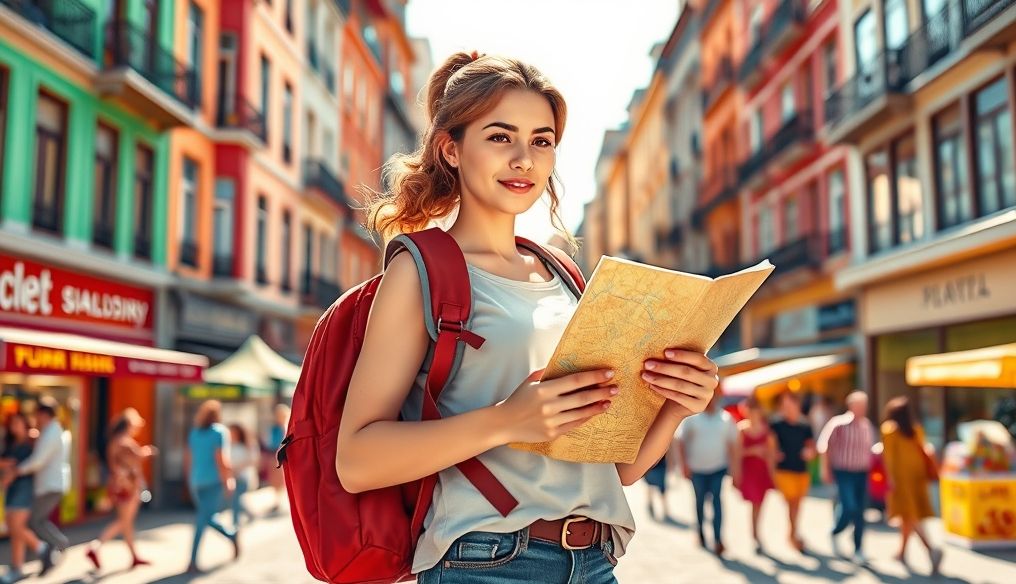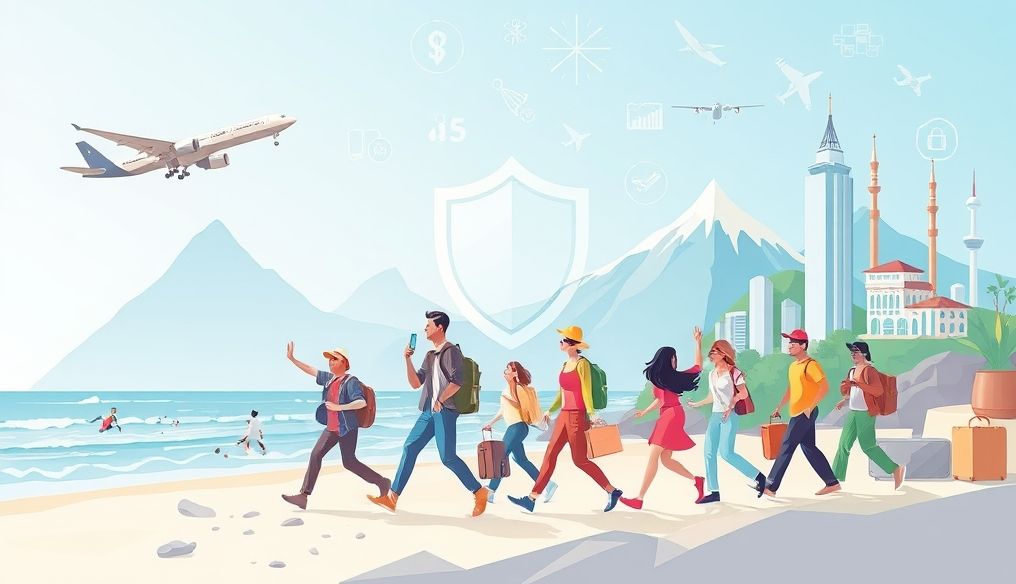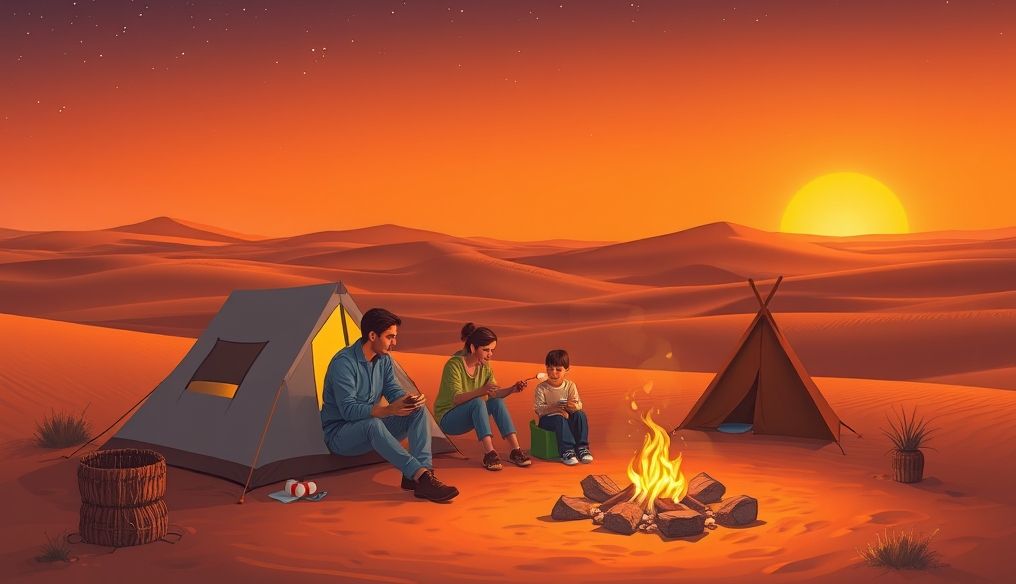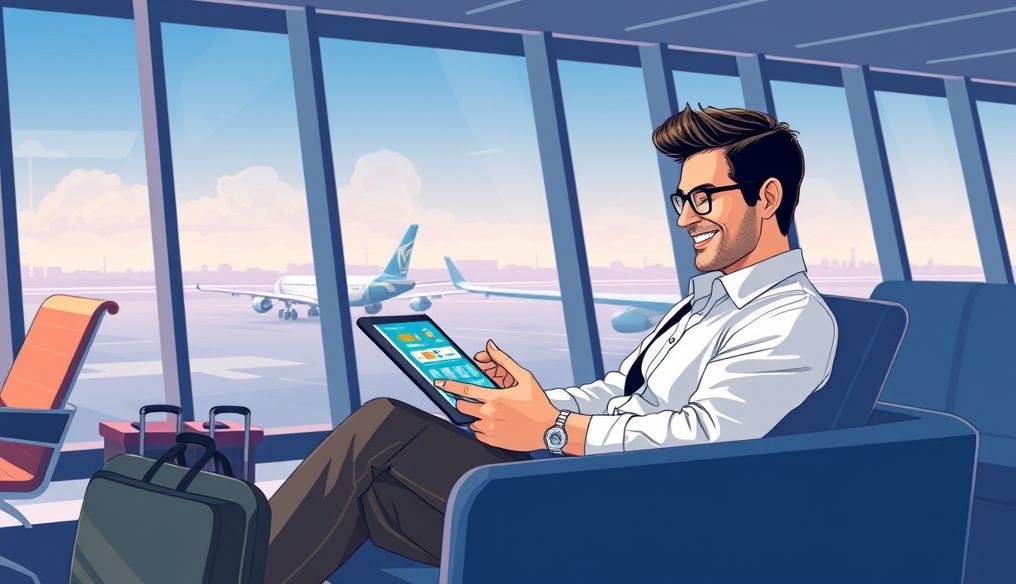Is Traveling Alone Safe? A Comprehensive Look
Traveling alone represents a unique experience that allows you to explore the world on your own terms and discover yourself at the same time. However, the question of safety remains a major concern for many. The answer is not a simple yes or no, but depends on several factors, including the destination, planning, and personal precautions.
Advantages and Disadvantages of Traveling Alone
Before diving into safety tips, it's important to understand the positive and negative aspects of traveling alone:
- Advantages:
- Independence and Flexibility: Complete freedom to choose activities and destinations and change plans at any moment.
- Personal Development: Self-discovery, increased self-confidence, and development of problem-solving skills.
- Meeting New People: Easy to connect with locals and other travelers.
- Peace and Relaxation: An opportunity to get away from the stresses of life and enjoy personal time.
- Disadvantages:
- Safety: Increased risk of accidents, theft, or fraud.
- Loneliness: Feeling isolated and lonely, especially in remote places.
- Cost: Costs may be higher at times, especially if you are paying for a full hotel room by yourself.
- Full Responsibility: Taking responsibility for everything, from planning to execution and problem-solving.
Risk Assessment: Factors Affecting Your Safety
Safety is not guaranteed anywhere, but some factors increase the risks:
- Destination: Some countries and regions are safer than others. Research crime rates and political stability before traveling.
- Gender: Women traveling alone face additional challenges, such as harassment and assault.
- Age: Older or younger people may be more vulnerable due to physical weakness or lack of experience.
- Time of Day: Traveling at night increases the risk of accidents or crime.
- Behavior: Acting confidently and avoiding suspicious places reduces risks.
Golden Tips for the Solo Traveler: Plan a Safe Trip
Advance planning is the key to a safe and enjoyable trip:
1. Thorough Research and Planning
Before embarking, do thorough research on your destination:
- Destination Information: Research crime rates, dangerous places, local customs, and laws.
- Advance Planning: Book hotels and transportation in advance, especially if you arrive late at night.
- Copies of Important Documents: Keep digital and printed copies of your passport, visa, airline tickets, and credit cards.
- Inform Someone of Your Plans: Share your travel plans with family or friends, and update them regularly.
2. Personal Safety: Be Careful and Aware
Be careful and aware of your surroundings at all times:
- Maintain Awareness: Avoid being distracted by your phone or music, and constantly monitor your surroundings.
- Avoid Suspicious Places: Do not hesitate to walk away from places where you feel uncomfortable.
- Do Not Show Wealth: Avoid wearing expensive jewelry or carrying large amounts of money.
- Keep Your Belongings Safe: Make sure to keep your bags and valuables close to you at all times.
- Learn Some Basic Phrases in the Local Language: This can help you communicate with locals and ask for help in emergencies.
3. Communication and Connection: Stay Connected
Stay connected to the outside world:
- Purchase a Local SIM Card: This allows you to make calls, send text messages, and access the internet at affordable prices.
- Use Messaging Apps: Use apps like WhatsApp or Messenger to stay in touch with family and friends.
- Activate Emergency Services: Know the local emergency phone numbers and how to reach them.
- Download Security Apps: There are many apps that can help you in emergencies, such as sending alerts to your contacts or tracking your location.
4. Health and Safety: Take Care of Yourself
Take care of your health and safety:
- Travel Health Insurance: Make sure you have health insurance that covers medical expenses abroad.
- Vaccinations: Consult your doctor about recommended vaccinations for your destination.
- First Aid Kit: Carry a basic first aid kit containing bandages, disinfectants, and painkillers.
- Sun Protection: Use sunscreen and wear a hat and sunglasses to protect yourself from harmful sun rays.
- Drink Plenty of Water: Stay hydrated by drinking plenty of water, especially in hot climates.
- Eat Food from Reliable Places: Avoid eating food from street vendors or places that look unclean.
- Beware of Drugs and Alcohol: Avoid drugs and alcohol, as they may make you vulnerable.
5. Safe Transportation: Choose Wisely
Choose safe means of transportation:
- Use Licensed Taxis: Avoid using unlicensed taxis or sharing rides with strangers.
- Check the Safety of Public Transport: Make sure the public transport you use is safe and reliable.
- Avoid Walking Alone at Night: If you have to walk at night, find a well-lit path and take it with a group of people.
- Tell Someone About Your Route: If you are going for long walks or hiking, tell someone about your route and your expected return time.
6. Safe Accommodation: Choose Reliable Places
Choose safe accommodation:
- Book Hotels or Hostels with a Good Reputation: Read online reviews before booking.
- Make Sure There are Secure Locks on Doors and Windows: Use the extra lock if available.
- Do Not Open the Door to Strangers: Check the identity of the visitor before opening the door.
- Do Not Leave Your Valuables in the Room: Use the hotel safe if available.
7. Self-Confidence and Intuition: Listen to Your Inner Voice
Trust your intuition:
- Listen to Your Intuition: If you feel uncomfortable in a situation, walk away from it.
- Act Confidently: Walking confidently and making eye contact can deter criminals.
- Do Not Hesitate to Ask for Help: If you need help, do not hesitate to ask for it from locals or the police.
8. Dealing with Difficult Situations: Be Prepared
Be prepared to face difficult situations:
- Learn Some Basic Self-Defense Techniques: These techniques can help you defend yourself if attacked.
- Carry Pepper Spray or a Whistle: This can help you deter attackers.
- Know How to Report a Crime: Know how to report a crime to the local police.
- Keep Calm: If attacked, try to stay calm and think clearly.
Conclusion: Traveling Alone is Safe with Planning and Precaution
Traveling alone can be a safe and rewarding experience if you plan ahead and take the necessary precautions. Remember that safety is your personal responsibility. Be careful and aware of your surroundings, trust your intuition, and enjoy your trip!




